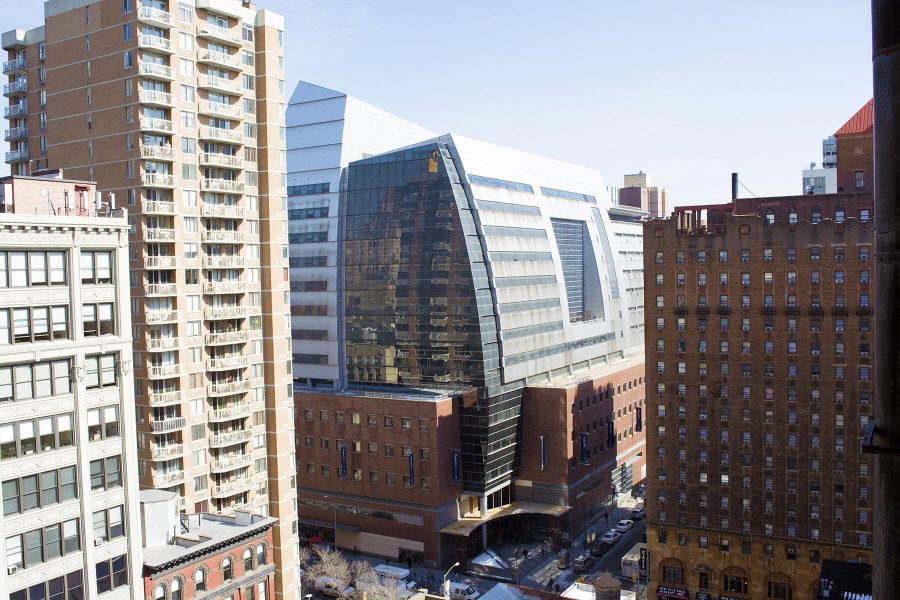Students’ lives and futures aren’t worth social fraternities
February 5, 2021
With the remote spring 2021 semester starting up, students have taken to social media to debate the long-extended moratorium on Greek social life at Baruch College, that started back in 2013 after the hazing death of a student.
On Dec. 8, 2013, a large group of Baruch Pi Delta Psi students took an unsanctioned weekend trip to the Pocono Mountains, Pennsylvania, to hold a hazing, or crossing, ritual, even though hazing was prohibited by both Baruch and the fraternity.
While there, leaders of the Baruch chapter of Pi Delta Psi organized a hazing ritual for the five or so new pledges called the “Glass Ceiling,” in which pledges walk blindfolded while carrying a sack of sand on their backs as older members tackle them.
19-year-old pledge Chun Hsien “Michael” Deng complained of a headache during the incident — but participants ignored him and continued to tackle him.
Deng died that night from a brain injury caused by the “Glass Ceiling.” His fraternity brothers waited over an hour to take him to the hospital while he was unconscious out of fear of consequences.
Authorities said that the delay in bringing Deng to medical attention contributed to his death.
As a result of this horrific incident, then-Provost and Senior Vice President for Academic Affairs David Christy placed a moratorium on Pi Delta Psi and all other social fraternities and sororities at Baruch.
The moratorium prevents new members from pledging and joining social Greek organizations without officially disbanding the organizations themselves. This is the strongest action the provost can take toward them as only the Undergraduate Student Government can de-charter student organizations.
This sanction was placed only on social Greek organizations, which meant professional fraternities and sororities and Greek honor societies could continue operating unaffected.
The moratorium gets extended by the provost every few years during the spring semester. The next time that it will be up for review is this current semester.
With that in mind, Bearcats have taken to Facebook groups and the Instagram account Overheard Baruch to share their thoughts and feelings on the moratorium and whether it should be extended or ended.
One student in particular, junior Frederick Tran, posted in a Baruch Facebook group that he is looking to start a fraternity despite the sanctions against them and was looking for support.
Despite the many ideas being thrown around recently, bringing social Greek life back to Baruch would be a very poor decision.
Some pro-Greek life stances argue that it has been a long time since the incident happened and that everyone’s learned from Deng’s death, but that’s questionable.
Firstly, it hasn’t been a long time for Deng’s family. No matter how much time passes, it will never bring back their loved one, and it will never give Deng his future back. It will never prevent the three former students who were convicted of murder their futures back.
For everyone else it’s been a long time because they weren’t involved, therefore haven’t lost anything.
Secondly, if Baruch students genuinely learned from the situation, they’d likely be way less persistent in demanding a return to Greek social life.
It’s doubtful that many students have ever even heard of Deng and what happened to him — it’s not discussed in the first-year seminar, after all. There’s no annual moment of silence or day of remembrance for him. There’s no memorial on campus.
There’s no reason anyone should believe that the majority of students are educated about the incident or know why there’s a moratorium on Greek life in the first place.
If only a few people know about the situation then the school community hasn’t learned from it.
Without properly learning from the past, there’s no way to guarantee a similar incident won’t happen again. Students’ lives and futures aren’t worth social fraternities.
Furthermore, social Greek life wouldn’t add anything of value to the Baruch community at all. The campus already has hundreds of clubs, with new clubs being added every year.
“To be honest, I don’t see the value added for Baruch. I don’t see what the Greek organizations contribute to campus life. I think there’s so many other clubs and organizations on the campus. … And then you have the honor societies and all the other groups that exist,” then-Baruch president Mitchel Wallerstein told The Ticker in a past interview. “I just don’t see a need for Greek organizations on this campus.”
There are professional and academic Greek organizations on campus already, in addition to student government, media organizations and tons of clubs based on interest, major, religion and culture. There are clubs meant for fun, clubs meant for networking, clubs meant for career readiness and so on.
Until there is a definitive answer to what a social Greek life would add to campus life, that none of the already existing campus organizations don’t already provide, no argument can be made for bringing back social Greek life to Baruch.









Ashley O'Kurley • Feb 6, 2021 at 4:04 pm
The notion that a "social" Fraternity connotes irresponsible socializing is a misnomer. The difference between the "clubs" mentioned here that are organized "based on interest, major, religion and culture" and the centuries-old legacy of Greek Life is profound. The ancient Greeks inspired a moral and intellectual legacy that took root in North America in the days following the Declaration of Independence to imbue young hearts and minds with the altruism of what we know today as liberal democracy, and with a lifelong commitment to the value of living a principles-centered life. What exactly distinguishes an organization as a "social Fraternity" as compared to a club "based on culture"? Baruch would do well to not engage in scapegoating easily identifiable minorities, nor abrogate young adults from freely associating.